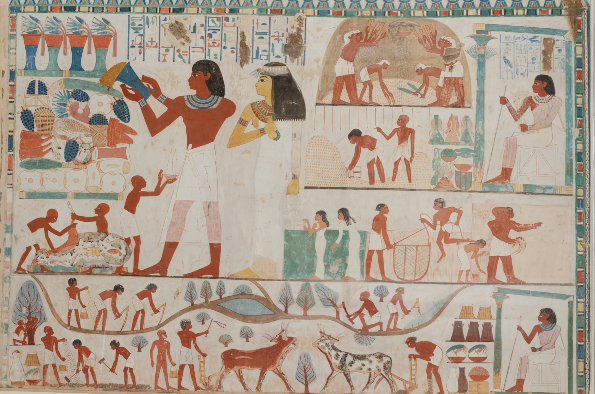
Peopling Ancient Egypt: an ethnography of pharaonic Egypt
- Dr Glenn Godenho
- Admission: Free event
Add this event to my calendar
Click on "Create a calendar file" and your browser will download a .ics file for this event.
Microsoft Outlook: Download the file, double-click it to open it in Outlook, then click on "Save & Close" to save it to your calendar. If that doesn't work go into Outlook, click on the File tab, then on Open & Export, then Open Calendar. Select your .ics file then click on "Save & Close".
Google Calendar: download the file, then go into your calendar. On the left where it says "Other calendars" click on the arrow icon and then click on Import calendar. Click on Browse and select the .ics file, then click on Import.
Apple Calendar: The file may open automatically with an option to save it to your calendar. If not, download the file, then you can either drag it to Calendar or import the file by going to File >Import > Import and choosing the .ics file.
The real pharaonic Egypt was a peasant society, and its core values were rooted in the realities of its peasant economy and culture. The close reading of the ancient record, and a bottom-up approach, then looks to describe what individuals actually did, and to locate that behaviour within the physical environment. It looks to extract descriptions of what was real from the ancient sources, and so place the ancient Egyptian directly into a continuous historical ethnography of Egypt. Key themes are those of any ethnography, focussed on the description of individual behaviour and manners within the range of primary social contexts: the household, work and kinship groups, and the village; social violence, and the negotiation of disputes; social rituals of coming of age and initiation; description of direct personal interactions with the immanent supernatural world, where worship was non-congregational.
Overall the aim is to present incidents of behaviour as evidence of contemporary reality, separated from more familiar agenda rooted in assumptions about the nature of Egyptian as a civilisation, or visions of Egypt as a society with effective institutional structures and political order.
Bio:
Chris Eyre is Professor of Egyptology at the University of Liverpool, where he has been a staff member since 1977. He originally studied Ancient Egyptian with Akkadian in the University of Oxford, graduating with a doctorate examining Employment and Labour Relations in the Theban Necropolis. He has worked on site in Egypt as an epigrapher in tombs of both the Old and New Kingdoms at Saqqara, as well as the Temple of Seti I at Abydos. Publications include monographs on The Cannibal Hymn (a ritual of the Pyramid Texts) and on The Use of Documents in Pharaonic Egypt, and papers concerned with the economy, the agricultural regime, and social relationships in pharaonic Egypt.
Much of his current research is concerned with applying a more ethnographic approach to the Egyptian record, targetting a more realistic understanding and more contemporary description of cultural, social and religious behaviour in the pharaonic period, and on continuities in the history of Egypt from ancient to modern. He is currently working to complete the project Peopling Ancient Egypt: an ethnography of pharaonic Egypt, for which he held a Leverhulme Major Research Fellowship.
This is a free event which is open to the public.
No registration necessary.
